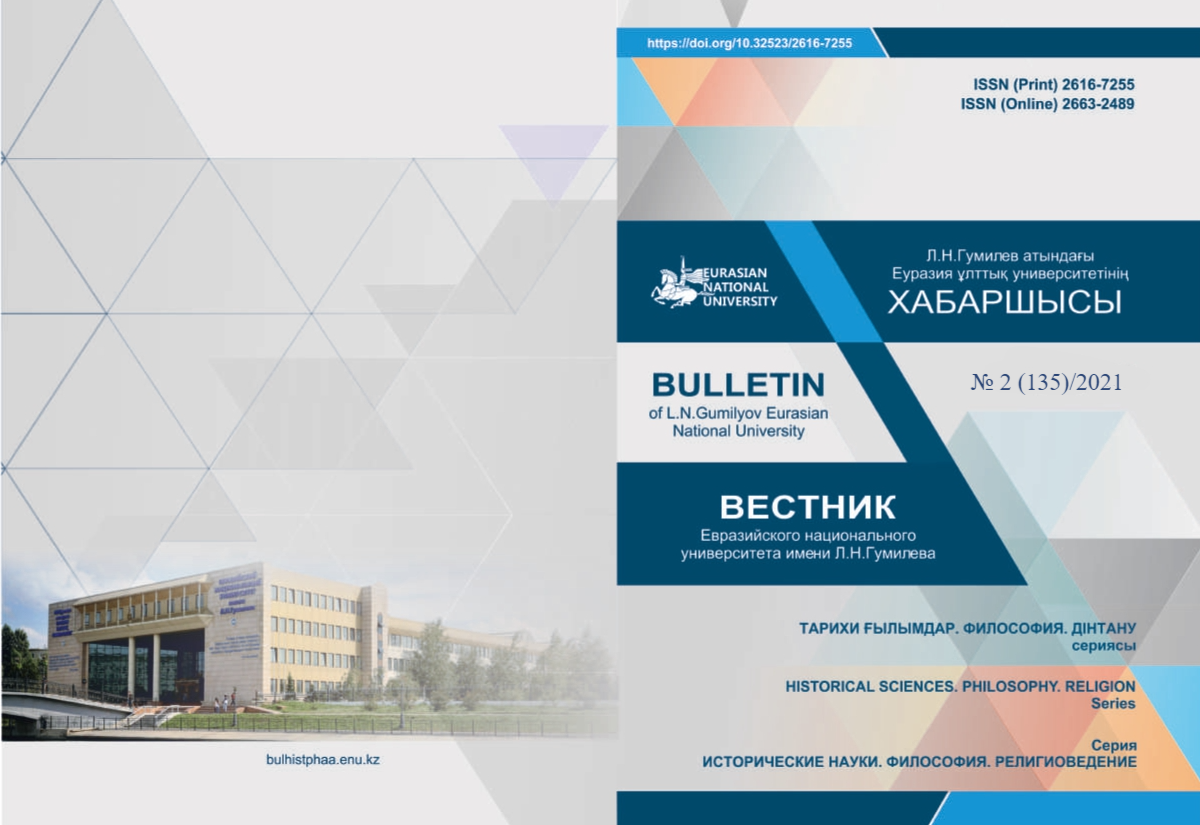Wroclaw and Ust-Kamenogorsk at the turn of XX-XXI centuries: historical memory and urban space
Views: 154 / PDF downloads: 151
DOI:
https://doi.org/10.32523/2616-7255-2021-135-2-10-25Keywords:
toponymy; urban space; ideology; communism; national idea; historical memory; memory; politics.Abstract
The disintegration and disappearance of the socialist camp (Eastern bloc of the pro-Soviet countries) from the political map in Europe gave impetus to the creation of a new format of inter-state relations. Similar processes took place on the territory of different republics of the former USSR. The disappearance of communist ideology led to a revival of national interests, which ended in a sovereign parade and the creation of independent state entities, including Kazakhstan. The aim of the research is to show the reflection of the change of communist ideology in the toponymical space of Wroclaw (Poland) and Ust-Kamenogorsk (Kazakhstan) as a farewell to Soviet history. The objects of the study are the cities of Wroclaw (Poland) and Ust-Kamenogorsk (Kazakhstan), the subject of the research is the transformation of the visual and toponymical urban space. Particular attention has been paid to the street names with anthroponymic content. As a result of the analysis, the authors came to the conclusion that, despite such a geographical distance between chosen cities and states, there is a common past between them. The connecting thread uniting Wroclaw and Ust-Kamenogorsk was the “Soviet era” and the processes of eradicating Soviet social constructs. The toponymy of both cities was formed – to some extent – by the political ideology of the Soviet state. The processes of decommunization and de-Sovietization included the ideology of renewal and transformation, the destruction of the visual memory of the USSR. The toponymical space, both in Kazakhstan and in Poland, has acquired new names, reflecting the milestones of historical events previously not included in the national histories. The authors believe that the urbanonyms of the city should cause only positive reactions, reflect the ¬ historical content, carry a functional, educational value.
Downloads

Downloads
Published
How to Cite
Issue
Section
License
Copyright (c) 2021 T. Waśkiel

This work is licensed under a Creative Commons Attribution-NonCommercial 4.0 International License.







